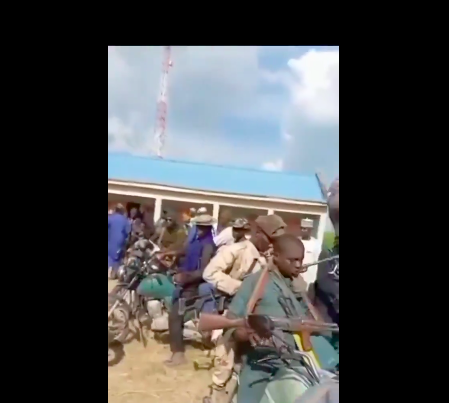Bokkos – The death toll from a series of attacks on villages in central Nigeria has climbed to almost 200, local authorities said on Wednesday, as survivors began to bury the dead.
Armed groups launched attacks between Saturday evening and Tuesday morning in Nigeria’s Plateau State, a region plagued for several years by religious and ethnic tensions.
Authorities had previously put the death toll at 163.
During a meeting with Nigeria’s vice president on Wednesday, Monday Kassah, head of the local government in Bokkos, Plateau State, said that 148 Bokkos villagers had been killed in the attacks.
At least 50 people were also reported dead in several villages in the Barkin Ladi area, according to Dickson Chollom, a member of the state parliament.
“We appeal to you to resist the temptation to succumb to sectional divisions or the poisonous rhetoric of hatred towards your fellow citizens, as we pursue justice to ensure your security,” Vice President Kashim Shettima told local officials and displaced people on Wednesday.
There are fears the death toll could rise further as some people remain missing, Kassah told AFP on Tuesday, adding that 500 people had been injured and thousands displaced.
He said that at least 20 villages had been targeted in a series of well-coordinated attacks between Saturday evening and Monday morning.
Gunfire could still be heard on late Monday afternoon, according to a source from the region, which is on the dividing line between Nigeria’s mostly Muslim north and mainly Christian south.
‘Apprehend the culprits’
A large number of the dead were buried on Tuesday, with the vice president of the Church of Christ in Nations, Timothy Nuwan, putting the number at 150.
“There are many people that were killed, slaughtered like animals, cold-blooded, some were in their houses, some were even outside,” he said.
Nigerian President Bola Ahmed Tinubu on Tuesday decried the attacks and ordered “security agencies to immediately move in, scour every stretch of the zone, and apprehend the culprits”.
Plateau State governor Caleb Mutfwang also called for “united efforts to identify and apprehend those responsible for these heinous acts”.
Northwest and central Nigeria have been long terrorised by bandit militias operating from bases deep in forests and raiding villages to loot and kidnap residents for ransom.
Competition for natural resources between nomadic herders and farmers, intensified by rapid population growth and climate pressures, has also exacerbated social tensions and sparked violence.
A jihadist conflict has raged in northeastern Nigeria since 2009, killing tens of thousands of people and displacing around two million, as Boko Haram battles for supremacy with rivals linked to the Islamic State group.
Tinubu has made tackling insecurity a priority since coming to office in May, as he seeks to encourage foreign investment in Africa’s most populous country.
The UN’s World Food Programme on Wednesday warned that conflict and insecurity, along with inflation and climate change, could sharply drive up hunger levels across Nigeria in the coming year.
Follow African Insider on Facebook, Twitter and Instagram
Source: AFP
Picture: Screenshot
For more African news, visit Africaninsider.com


